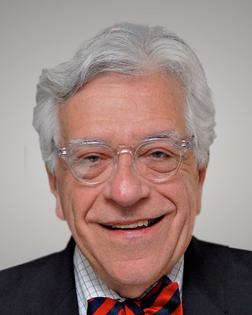The God Squad: The way love heals us
In an interfaith column like The God Squad, it is easy to scoop up sectarian holidays and learn from their wisdom. Passover, Chanukah, Easter, Christmas, Diwali, Ramadan, Vesak all have much to teach us about the way sacred time intersects with secular time. However, the sacred calendar does not have a clear dividing line from our secular world. There are holidays that have had their original religious roots cut off and replaced by cultural rituals that have nothing to do with their origins. The Halloween of trick or treat has nothing to do with All Hallows’ Eve before All Saints’ Day. Thanksgiving may have been connected to the biblical tabernacles but with the addition of cranberry sauce and stuffing and parades it has morphed into a new semi-sacred national holiday.
Valentine’s Day is also one of those secular holidays that once had a religious past. Originating as a veneration of a third-century saint who ministered to persecuted Christians in Rome, by the 15th century it was a celebration of the spring mating season of birds in England. Chocolates and cards and flowers and the celebration of love soon followed and here we are.
What I want to do is lift up love and leave the chocolates behind – no strike that – lift up love and chocolates and leave the flowers behind because love is the only emotion that links the world of faith with the world outside of faith.
I want to include in my reflection on love young, happy, healthy people who are smiling as the result of Cupid’s arrows finding their willing hearts. That is love but it is a love for people who don’t need love desperately. That is love as infatuation. That is love as lust. It is fine but it is not enough to lift up Valentine’s Day from its heart-shaped triviality.
Let us praise the way love heals the broken among us.
One of the ways we are broken is through hate, and one of the antidotes to hate is love.
Martin Luther King Jr. wrote of this truth:
I mourn the loss of thousands of precious lives, but I will not rejoice in the death of one, not even an enemy. Returning hate for hate multiplies hate, adding deeper darkness to a night already devoid of stars.
Darkness cannot drive out darkness: only light can do that. Hate cannot drive out hate: only love can do that.
Alan Paton wrote in his elegy about South Africa under Apartheid. I feel the need for his words today in helping to heal the wounds of the Gaza War:
I can only hope that when your hearts turn to loving us our hearts will still be able to love you.
The two greatest letters about the healing power of love are the letter of Paul to the Corinthians and a letter from a paraplegic friend:
1 Corinthians 13:4-8,13 Love is patient, love is kind. It does not envy, it does not boast, it is not proud. It does not dishonor others, it is not self-seeking, it is not easily angered, it keeps no record of wrongs.
Love does not delight in evil but rejoices with the truth. It always protects, always trusts, always hopes, always perseveres. Love never fails. But where there are prophecies, they will cease; where there are tongues, they will be stilled; where there is knowledge, it will pass away. And now these three remain: faith, hope and love. But the greatest of these is love.
A paraplegic wrote these words to his friend:
I think it is likely I am not the most seriously wounded among us, only the most conspicuously bandaged. Sooner or later every one of us will be made to feel flawed, inadequate, powerless. The solution is to let yourself be loved. Not pitied, indulged or pampered, but loved. It is sometimes a matter of asking others, even those we have no claim on, to carry part of the load, to make room in their plans for our needs. It is sometimes a matter of not asking but waiting and trusting others to sense our wants; it is always a matter of expecting to be loved. And the time to begin is now, because asking for help and understanding in the small things will prepare us for the day when we must ask for help and understanding in larger things. More than that, it will put us in touch with the truth about ourselves and about every other human being. We are precarious, we are mortal, but we are loved.
Happy Valentine’s Day!
(Send ALL QUESTIONS AND COMMENTS to The God Squad via email at godsquadquestion@aol.com. Rabbi Gellman is the author of several books, including “Religion for Dummies,” co-written with Fr. Tom Hartman. Also, the new God Squad podcast is now available.)
©2025 The God Squad. Distributed by Tribune Content Agency, LLC.
(c) 2025 THE GOD SQUAD DISTRIBUTED BY TRIBUNE MEDIA SERVICES, INC.












Comments